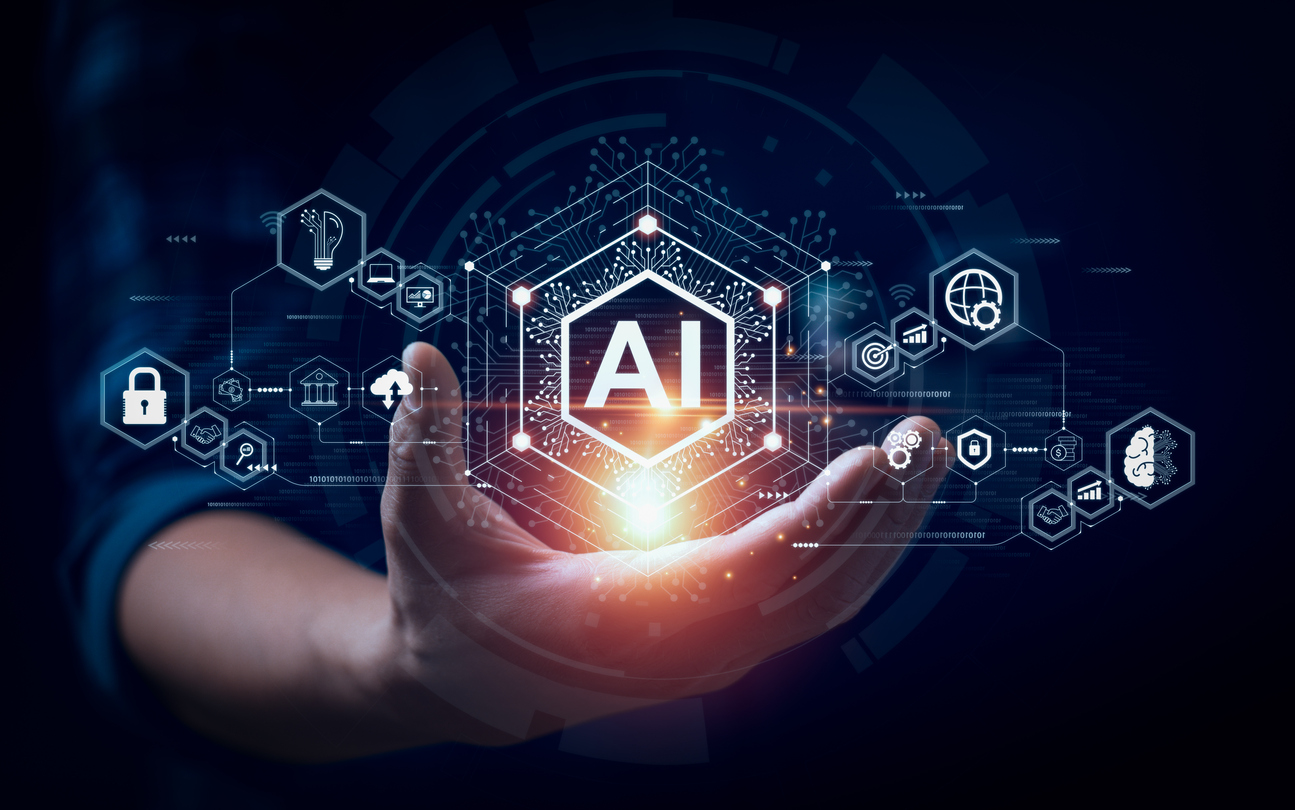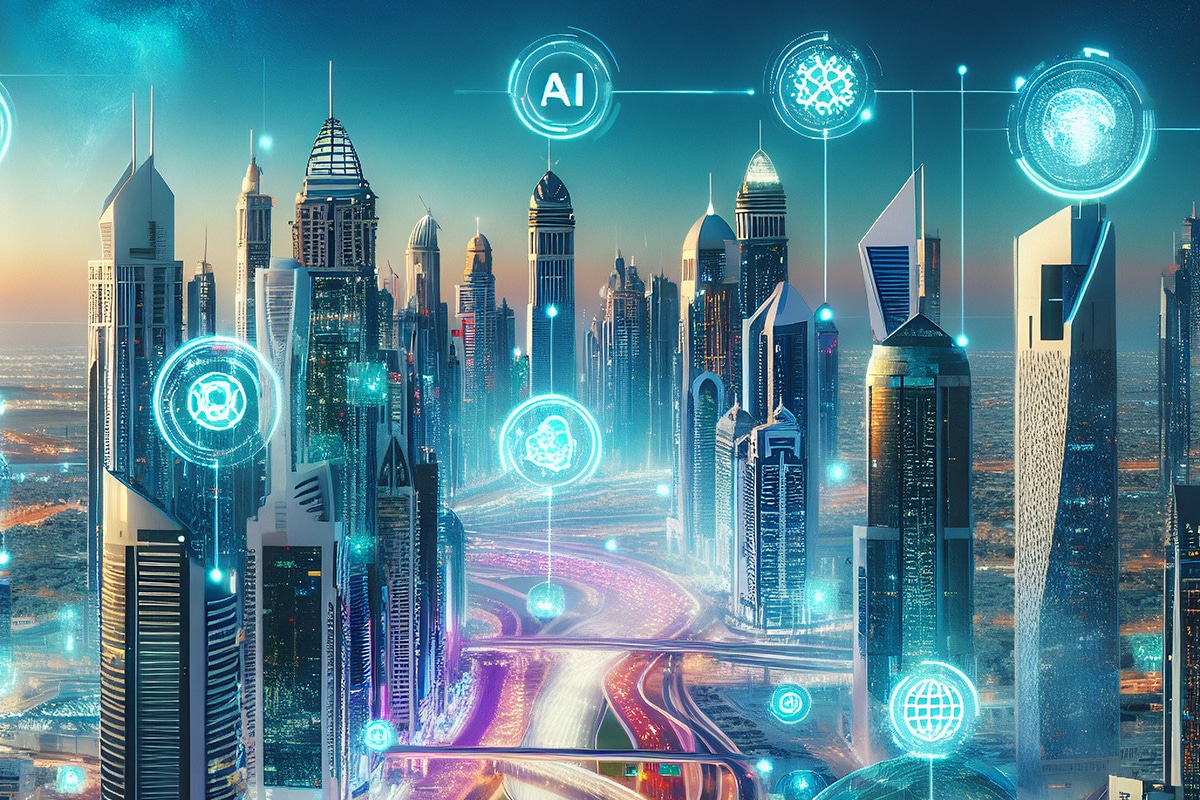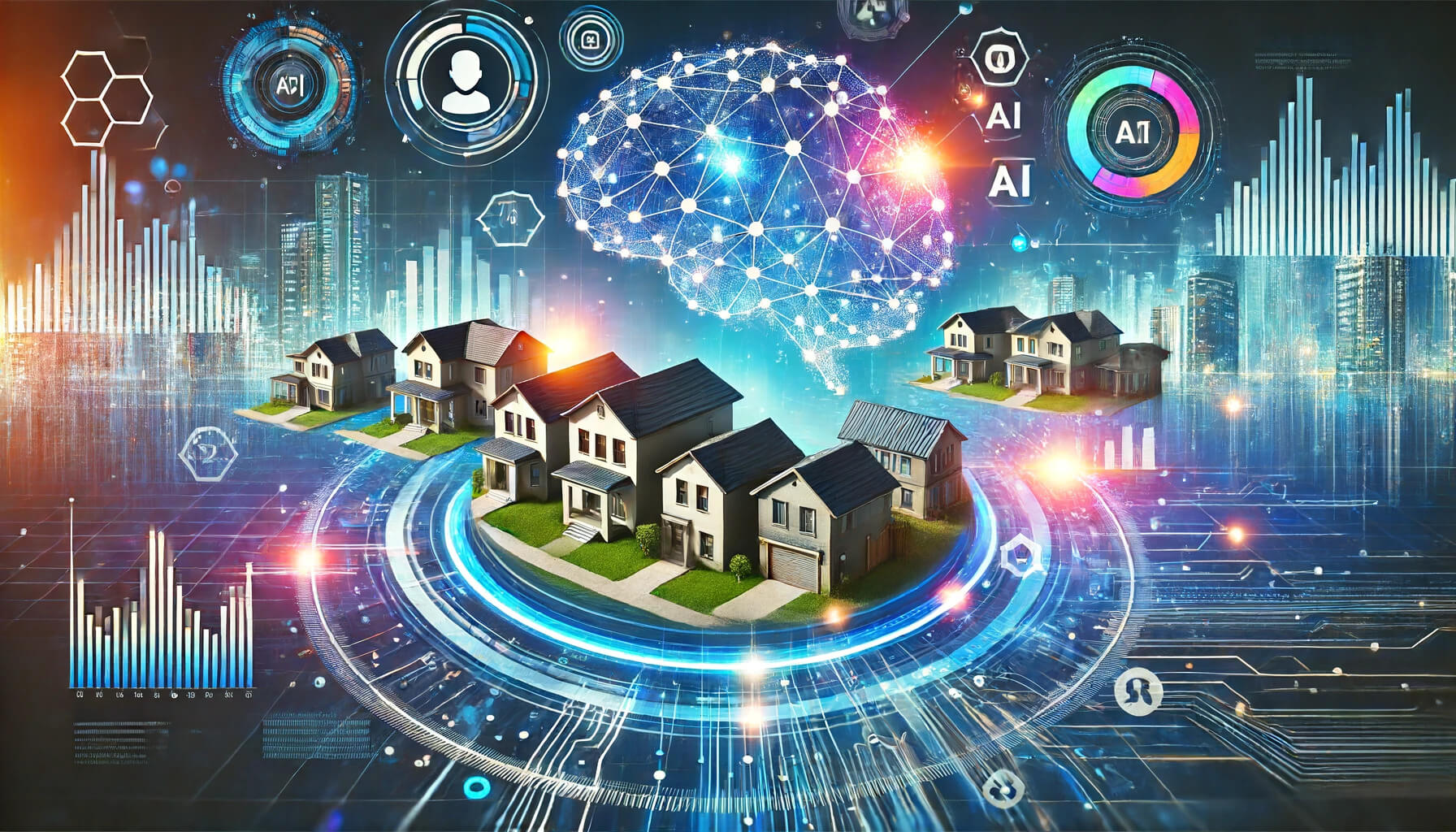Introduction
Artificial Intelligence (AI) is no longer science fiction; it has become a transformative force across numerous industries. Among these, the real estate sector stands out as one of the most promising fields for AI integration. Traditionally, real estate has relied on human expertise for property valuation, market analysis, and customer engagement. However, the advent of AI is reshaping the industry by automating processes, improving decision-making, and enhancing the overall experience for buyers, sellers, and investors. AI fundamentally alters real estate transactions and operations from predictive analytics to innovative property management systems.

How Is AI Transforming the Real Estate Industry?
AI is revolutionizing the real estate industry by streamlining operations, improving customer interactions, and enabling data-driven decisions. Through machine learning algorithms, natural language processing, and predictive analytics, AI will analyze expansive amounts of data to generate actionable insights. This transformation is evident in several areas:
Enhanced Property Search and Recommendations
AI-powered platforms simplify the property search process by providing personalized recommendations to users. These systems analyze individual preferences such as budget, location, and amenities to suggest properties that match specific criteria. Advanced algorithms even factor in subtle preferences like architectural style and proximity to schools or public transport.
For instance, AI chatbots integrated into real estate websites can engage with users, understand their needs, and present tailored property options in real time. This reduces the time and effort to find the perfect property while improving customer satisfaction.
Accurate Property Valuation
Determining a property’s value has always been complex, requiring considering factors such as market trends, location, and property condition. AI-driven valuation tools utilize big data and machine learning models to assess these variables more accurately and quickly than traditional methods.
These tools provide real-time valuation updates, enabling sellers to price their properties competitively and customers to make wise decisions. AI also accounts for future market trends, giving stakeholders a forward-looking perspective.
Predictive Analytics for Market Trends
AI excels at analyzing historical data to forecast future market trends. AI can predict shifts in property prices, rental yields, and market saturation by examining economic indicators, demographic changes, and real estate demand.
For investors and developers, these insights are invaluable for identifying lucrative opportunities and mitigating risks. Predictive analytics helps real estate agents advise clients on the best times to buy or sell properties.
Automation of Administrative Tasks
AI-powered tools automate routine administrative tasks such as document processing, contract generation, and transaction management. These systems use natural language processing to review legal documents, ensuring compliance and minimizing errors.
Automation speeds up processes and reduces operational costs. Property managers, for instance, can use AI to schedule maintenance, track lease agreements, and handle tenant queries efficiently.

Smart Property Management
AI-enabled intelligent systems are transforming property management by integrating Internet of Things (IoT) devices. Smart buildings with AI-powered sensors can monitor energy usage, detect maintenance issues, and optimize resource allocation.
These systems enhance tenant satisfaction by proactively addressing issues, such as repairing malfunctioning HVAC systems before tenants report them. This means fewer complaints and more efficient operations for landlords and property managers.
Improved Customer Service with AI Chatbots
AI chatbots are revolutionizing customer service in real estate. These virtual assistants can answer queries, schedule property viewings, and update transactions. Unlike human agents, chatbots can handle multiple inquiries simultaneously, ensuring prompt responses.
By leveraging natural language processing, AI chatbots deliver personalized and conversational experiences, fostering stronger relationships between agents and clients.
Risk Assessment and Fraud Detection
AI systems effectively identify potential risks and fraudulent activities in real estate transactions. Machine learning algorithms analyze patterns in financial data, property history, and buyer credentials to flag irregularities.
This capability is precious in commercial real estate, where large-scale investments require rigorous due diligence. AI-driven risk assessment tools ensure transparency and security, instilling confidence among stakeholders.
Virtual Reality (VR) and AI Integration
Virtual property tours powered by AI and VR are becoming increasingly popular. These immersive experiences let potential buyers explore properties remotely, saving time and resources. AI enhances these tours by tailoring the experience to individual preferences, highlighting features that align with the buyer’s interests.
AI in Real Estate Marketing
AI is transforming marketing strategies by providing deep insights into customer behavior. Real estate firms use AI to analyze web traffic, social media performance, and lead generation data to optimize campaigns. Predictive algorithms identify high-potential leads, enabling targeted marketing efforts that yield better results.
Advantages of AI in Real Estate
- Efficiency: Automation of repetitive tasks reduces workload and speeds up processes.
- Accuracy: Data-driven insights minimize human errors in valuation and decision-making.
- Personalization: AI tailors recommendations and services to individual preferences.
- Cost Savings: Streamlined operations and reduced manual intervention lower costs.
- Enhanced Transparency: Improved fraud detection and risk assessment foster trust.

Challenges and Limitations
While AI offers significant benefits, its integration in real estate comes with challenges:
- Data Privacy Concerns: Handling sensitive customer data raises privacy issues.
- High Initial Costs: Implementing AI systems requires substantial investment.
- Skill Gaps: Real estate professionals need training to use AI tools effectively.
- Dependence on Data Quality: AI performance relies on accurate and comprehensive data.
AI and Sustainable Urban Planning
AI drives innovation in sustainable urban planning, a critical component of the real estate industry’s future. Urban areas face growing challenges such as population density, traffic congestion, and environmental degradation. By leveraging AI, planners and developers can create more intelligent, sustainable cities, prioritizing livability and resource efficiency.
One significant application is in traffic management and mobility. AI analyzes traffic patterns and population movement to design optimized road networks, public transit systems, and pedestrian pathways. This reduces congestion, enhances accessibility, and lowers carbon emissions.
AI also aids in energy management for urban developments. AI-powered smart grid technologies ensure efficient energy distribution, lowering waste and promoting renewable energy sources. Buildings equipped with AI-driven IoT systems monitor energy consumption and adjust usage dynamically, reducing environmental impact while cutting costs for property owners and tenants.
In addition, AI facilitates predictive modeling to assess the long-term effects of urban expansion. Developers can identify potential challenges by simulating different scenarios and implementing proactive solutions. For example, AI can forecast the environmental impact of new construction, enabling eco-friendly adjustments before projects begin.
Through these advancements, AI is paving the way for sustainable real estate practices that align with the growing demand for green, future-ready communities.
The Future of AI in Real Estate
As AI technology advances, its role in real estate will expand further. Emerging trends include:
- Blockchain Integration: Combining AI with blockchain for secure and transparent transactions.
- AI-Powered Auctions: Automating property auctions with real-time bidding systems.
- Sustainable Development: Using AI to design eco-friendly and energy-efficient properties.
- Hyper-Personalized Services: AI systems offering even more refined personalization.

Frequently Asked Questions (FAQs):
What is AI’s role in real estate?
AI enhances various aspects of real estate, including property search, valuation, market analysis, and customer service, by leveraging data and automating processes.
How does AI improve property valuation?
AI uses machine learning algorithms to process market trends, location, and property conditions, delivering accurate and real-time valuations.
Can AI replace real estate agents?
AI complements agents by automating routine tasks and providing data-driven insights, but the human touch remains essential for building client relationships.
Is AI cost-effective for small real estate businesses?
Although initial implementation costs can be high, AI tools ultimately save money by streamlining operations and improving efficiency, making them valuable for businesses of all sizes.
What are the risks of using AI in real estate?
Risks include data privacy concerns, reliance on data quality, and the potential for over-reliance on automated systems without human oversight.
What does the future hold for AI in real estate?
AI is set to drive innovations like blockchain integration, innovative property development, and advanced customer personalization, further revolutionizing the industry.
How does AI impact real estate marketing?
AI revolutionizes real estate marketing by analyzing customer behavior, optimizing ad campaigns, and identifying high-potential leads. This ensures targeted efforts and improved return on investment for marketing initiatives.
Can AI help in sustainable real estate development?
AI plays a significant role in sustainable development by analyzing data to design energy-efficient buildings, optimize resource usage, and incorporate eco-friendly materials. This supports environmentally conscious construction and management practices.












